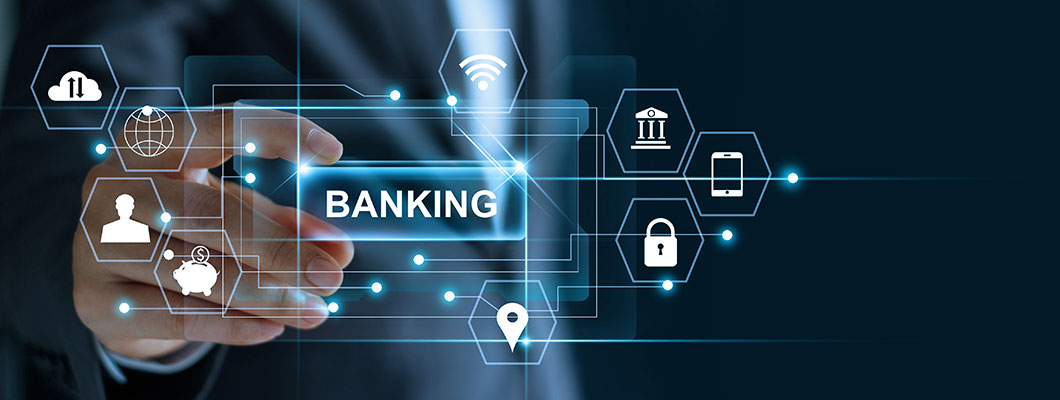
Banking is a complex field with a wide range of terminologies that can sometimes be confusing for the average person. Whether you are a seasoned investor or a newcomer to the world of finance, understanding these important banking terms is essential for managing your finances effectively. In this article, we will explore some of the Important banking terms that you should know.

A bank is a financial institution authorized to accept deposits and provide loans, offering various financial services such as wealth management, currency exchange, and safe deposit boxes. Different types of banks include retail banks, commercial or corporate banks, and investment banks, all regulated by the national government or central bank in most countries.
Below is the list of Important Banking terms:
The repo rate is the interest rate at which the Reserve Bank of India lends money to commercial banks during times of need, often during inflationary periods. The current repo rate in India is 4.40%. A similar concept is the bank rate, which does not require collateral and is currently at 4.25%.
The reverse repo rate is the rate at which the Reserve Bank of India borrows money from commercial banks to control the money supply in the market. The current reverse repo rate is 3.35%.
The Statutory Liquidity Ratio is the proportion of cash, gold, and other assets that Indian banks must hold before lending money to customers. It serves to control credit expansion in the country, and the current SLR rate is 18.50%.
The Cash Reserve Ratio is the percentage of funds that all banks in India are required to keep with the Reserve Bank of India. It is adjusted by the RBI to manage market liquidity. The current CRR rate is 3%.
Retail banking is a service provided by many banks, allowing customers to manage their accounts, access credit, and safeguard their funds. It is also known as consumer banking.
Bitcoin is a type of cryptocurrency that enables direct peer-to-peer transactions without the involvement of the RBI.
Call money refers to short-term loans with high interest rates and a maturity period of 1 to 14 days. The lender can demand repayment at any time. If the loan is repaid within a day, it becomes call money; otherwise, it is known as notice money.
The capital market deals with long-term debts through the trading of stocks, bonds, and other long-term investments. On the other hand, the money market deals with short-term funds with a maturity period of fewer than 365 days.
Scheduled Banks are listed in the Reserve Bank of India Act of 1934, under the Act’s Second Schedule. These banks are regulated by the RBI. Non-Scheduled Banks are those not listed in the Second Schedule.
Non-Performing Assets are loans that have been overdue for more than 90-180 days, leading to defaults. These assets no longer generate income for the bank.
Understanding banking terms is crucial for anyone involved in the financial world, whether you’re a customer, investor, or financial professional. From interest rates and monetary policies to different types of banks and financial products, these terms play a significant role in shaping the global economy and individual financial decisions.
Now, we will explore some important banking terms that are essential to grasp for a better understanding of the banking and financial landscape. Whether you’re a novice or an experienced financial expert, gaining insight into these terms will enable you to navigate the complexities of the banking industry with confidence.
The account balance refers to the amount of money in a bank account at a given time. It is the total of all deposits, withdrawals, and interest earned or charged on the account. Monitoring your account balance regularly is crucial to avoid overdrawing and ensure you have sufficient funds for transactions.
The interest rate is the cost of borrowing money or the return on savings. For borrowers, it represents the percentage charged by the lender for using their funds, while for savers, it indicates the earnings they receive on their deposits. Interest rates can be fixed or variable and play a significant role in determining the cost of loans and the growth of savings.
A credit score is a numerical representation of an individual’s creditworthiness. It is used by lenders to assess the risk of lending money to a borrower. Factors such as payment history, credit utilization, and length of credit history influence the credit score. A higher credit score indicates a lower credit risk and can lead to better loan terms and interest rates.
A debit card is a payment card linked to a bank account that allows the cardholder to make electronic transactions and withdraw cash from ATMs. Unlike a credit card, a debit card deducts funds directly from the account, and the cardholder can only spend the available balance.
An Automated Teller Machine (ATM) is a self-service banking terminal that enables customers to perform various transactions, such as cash withdrawals, account inquiries, and funds transfers, without visiting a bank branch. ATMs are available 24/7, providing convenient access to banking services.
An overdraft occurs when an account balance goes below zero, and the bank honors a transaction, allowing the account holder to make a payment or withdrawal even with insufficient funds. However, overdrafts often come with fees and interest charges, making them an expensive way to borrow money.
A mortgage is a loan provided by a bank or a lender to finance the purchase of real estate. The property being purchased serves as collateral for the loan, and the borrower makes regular payments (mortgage payments) over a specified period until the debt is fully repaid.
Compound interest is the interest calculated on the initial principal amount and the accumulated interest from previous periods. It allows investments and savings to grow faster over time, as interest is continually added to the principal amount, generating additional interest.
The FDIC is an independent agency of the United States government that insures deposits in banks and savings institutions. It provides deposit insurance coverage up to a certain limit per account holder, giving customers confidence that their money is protected even if the bank faces financial difficulties.
A wire transfer is a method of electronic funds transfer where funds are sent from one bank or financial institution to another. It is a quick and secure way to send money domestically or internationally, often used for large transactions or time-sensitive payments.
Understanding these essential banking terms will empower you to make informed financial decisions, manage your money effectively, and navigate the banking system with confidence. Whether you are opening a new account, applying for a loan, or exploring investment opportunities, having a grasp of these terms will serve you well in your financial journey.

Banking is a crucial aspect of modern economies, providing a range of financial services that cater to the diverse needs of individuals, businesses, and governments. Over the years, the banking sector has evolved to meet specific requirements, leading to the emergence of various types of banking institutions and services. Each type of banking serves distinct purposes and plays a vital role in the financial landscape.
Here’s a table showcasing different types of banking:
Important Banking Terms: Types of Banking |
|
|---|---|
| Type of Banking | Description |
| Retail Banking | Provides financial services to individual customers, such as checking and savings accounts, loans, and credit cards. |
| Commercial Banking | Focuses on providing services to businesses and corporations, including business loans, treasury services, and merchant accounts. |
| Investment Banking | Specializes in assisting companies with raising capital through underwriting and issuing securities in the financial markets. |
| Private Banking | Offers personalized financial and banking services to high-net-worth individuals, including wealth management and estate planning. |
| Islamic Banking | Operates under Islamic principles, avoiding interest-based transactions and following ethical and Sharia-compliant guidelines. |
| Central Banking | Manages a country’s monetary policy, issues currency, and regulates the banking system, acting as the bank for the government and commercial banks. |
| Online Banking | Provides banking services through digital platforms, allowing customers to access their accounts and conduct transactions online. |
| Mobile Banking | Allows customers to perform banking activities through mobile devices, providing convenience and accessibility on the go. |
| Credit Union | A cooperative financial institution owned and operated by its members, offering similar services to retail banks but with a focus on member benefits. |
| Postal Banking | Involves banking services offered through postal systems, particularly in areas with limited access to traditional banks. |
First in India Comprehensive List in 77 Years of Independence of India
An overdraft is a financial facility that permits the transfer of funds from one account to another, with a unique feature of allowing withdrawals even if the actual balance is zero.
Since the inception of formal banking, banks have traditionally relied on what is known as the "five P's" – namely, people, physical cash, premises, processes, and paper. These essential elements have been integral to the banking experience, and customers have long interacted with all of these aspects while conducting their banking activities.
Repo Rate: The Repo rate refers to the interest rate at which commercial banks borrow money from the Reserve Bank of India (RBI). Capital Market: The capital market is a financial market that facilitates the trading of long-term debts and investments, such as stocks and bonds. Money Market: The money market is a financial market that deals with short-term funds, typically with a maturity period of less than one year.
An ATM, short for Automated Teller Machine, is a convenient self-service banking outlet that allows users to perform various financial transactions. Withdrawing cash, checking account balances, and transferring funds are among the services available at an ATM. Banks offer their ATM services by installing these machines at various locations across the country, providing customers with easy access to their accounts and banking needs.
RTGS, which stands for Real Time Gross Settlement, is an expeditious funds transfer mechanism that facilitates the transfer of money from one bank to another in real time and on a gross basis. It is renowned as the swiftest money transfer system within the banking channel.
<div class="new-fform">
</div>